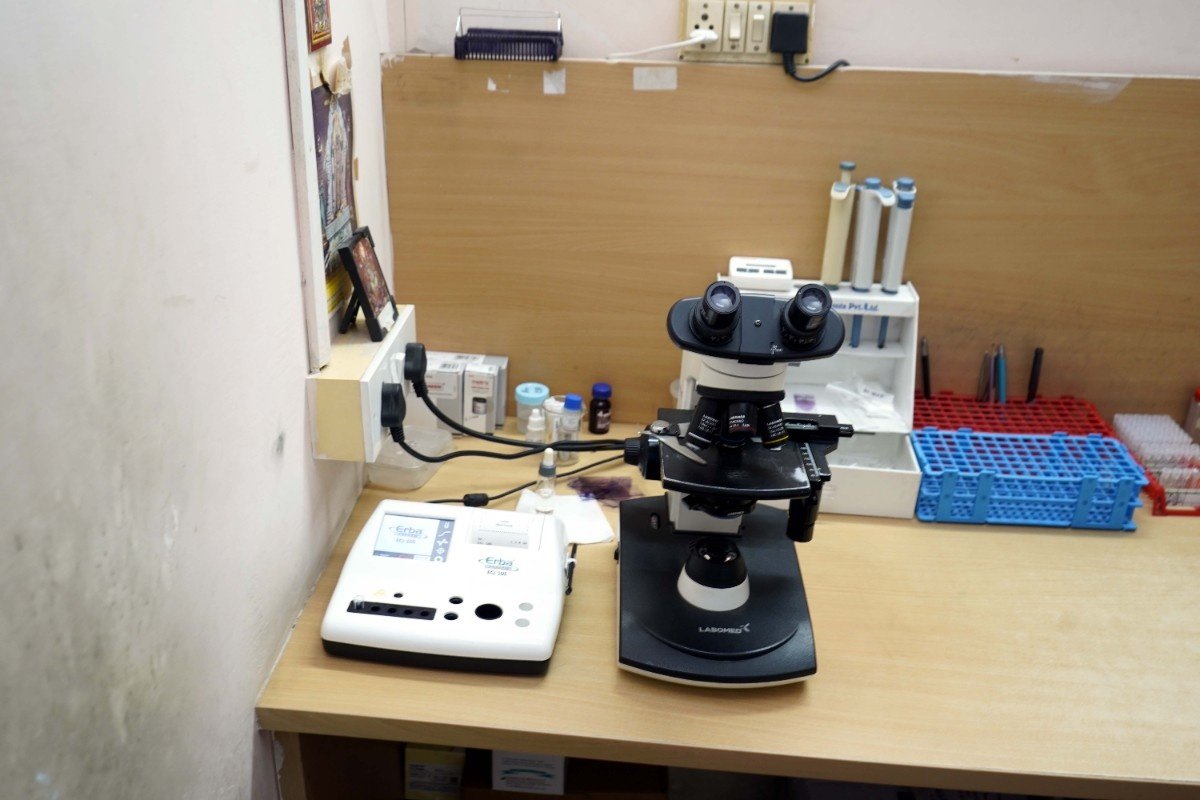Semen Analysis
Male fertility can be ascertained using a diagnostic process called a semen analysis test. It’s a first step in assessing male reproductive health, even though it doesn’t offer a comprehensive assessment of fertility.
Furthermore, by counting the leftover sperm in semen, this test can assess the effectiveness of a vasectomy, a surgical procedure used to provide permanent male contraception. The process is non-invasive and has no known negative consequences.

Our Services
- MALE FERTILITY
- DNA FRAGMENTATION SEMEN ANALYSIS
- OBG/ GYNAE
- INFERTILITY DISORDERS (IUI)
- OVULATION CALCULATOR
- OVULATION CALENDAR

Counselling
- BEFORE MARRIAGE COUNSELING
- AFTER MARRIAGE COUNSELING
- OLD-AGE COUNSELING
- FITNESS FOR MARRIAGE
- PSYCHIATRY

Emergency Services
Emergency services refer to the organizations and resources dedicated to providing immediate assistance and aid in situations involving accidents, disasters, medical emergencies, and other critical incidents.
Call Now
1234569875

Male patient wellness guidelines
Proactive measures to promote reproductive health can be taken by individuals to increase male fertility
- Check-ups on a Regular Basis: See a doctor on a regular basis to find and treat any underlying medical conditions that may affect fertility.
- A balanced diet, regular exercise, abstinence from smoking and excessive alcohol use are all components of a healthy lifestyle.
- 1. Vigorous antioxidant enzymes can be elevated by moderate exercise, which may aid in sperm preservation.
- 2. Maintaining a nutritious diet, Snacking on a lot of fruits and vegetables can assist enhance sperm health because they are high in antioxidants
- 3. Smoking not only lowers your sperm count but also decreases the motility of your existing sperm. Smoking is also connected to a number of malignancies.
- 4. Heavy drinking can lead to reduced testosterone production, impotence and decreased sperm production. If you choose to drink, do so in moderation. For healthy adults, that means up to one drink a day for women and two drinks a day for men.

Prevent Environmental Hazards:
Reduce your exposure to pollutants in the environment and shield your genital area from intense heat.

Practice Safe Sex:
Use condoms to prevent STIs and seek medical attention right away if you think you may be infected. Prevent STIs, or sexually transmitted illnesses. Male infertility can result from sexually transmitted illnesses like gonorrhea and chlamydia. Reducing the number of sexual partners, always using a condom for intercourse, and maintaining mutually monogamous relationships with uninfected partners are all effective approaches to prevent sexually transmitted infections (STIs).

Review of Medication:
To find out whether your medications may affect your fertility, speak with your doctor if you take any.

Take control of your stress:
Stress can alter the hormones required to make sperm and reduce sexual function. Take vitamins. The condition of your sperm depends on a few vitamins, namely D, C, E, and CoQ10. In case one consumes sufficient food, there's no need for vitamin supplements. If you want to know what will really increase your fertility, you should always visit a doctor.
